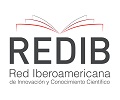Dominios de competencias básicas para la inclusión del enfoque
Una Salud en el diseño curricular de medicina veterinaria
DOI:
https://doi.org/10.14409/favecv.2023.22.e0020Palabras clave:
ciencias veterinarias, competencias, Una Salud, dominios, subdominiosResumen
Una amplia diversidad de organizaciones a nivel internacional se ha abocado a identificar los conocimientos, las capacidades, las habilidades y las actitudes que puedan considerarse fundamentales para que las personas contribuyan con éxito a los esfuerzos que requiere mirar nuestro planeta desde el enfoque de Una Salud. Este enfoque integrado, interdisciplinario, multisectorial y preventivo para proteger la salud humana, animal y ambiental lleva a considerar el desarrollo de competencias para la construcción de una identidad profesional integral. El objetivo de este trabajo es efectuar una revisión de las propuestas de competencias con enfoque Una Salud en el campo de la educación veterinaria. Los resultados obtenidos indican un consenso internacional en torno a dominios básicos o centrales de competencias Una Salud, denominados: Gestión, comunicación e informática, valores y ética, cultura, creencias y género, liderazgo, trabajo en equipo, colaboración y asociación, responsabilidad, pensamiento sistémico, políticas, promoción e investigación. Los países africanos incorporan género cultura y creencias, y los dominios: política y promoción e investigación. Para los dominios se proponen subdominios y ejemplos. Tanto las competencias como los atributos personales promovidos por el enfoque Una Salud, orientan la construcción integral de la identidad profesional.
Citas
Amuguni H, Bikaako W, Naigaga I, Bazeyo W. 2019. Building a framework for the design and implementation of one health curricula in east and Central Africa: OHCEAs one health training modules development process. One Health 7: 002–2. https://www.ncbi.nlm.nih.gov/pmc/articles/PMC6288412/pdf/main.pdf
Antoine‑Moussiaux N, · de Bisthoven L, Leyens S, Assmuth T, Keune H, Zinsstag J, Jean Hugé J, Vanhove MP. 2019. The good, the bad and the ugly: framing debates on nature in a One Health community. Sustainability Science 14: 1729–1738.
Assmuth T, Lyytimäki J. 2015. Co-constructing inclusive knowledge in converging felds: environmental and health care. Environmental Sciences & Policy 51: 338–351.
AVMA. 2021. American Veterinary Medical Association. One Health. https://www.avma.org/resources-tools/one-health
Bonilla-Aldana DK, Dhama K, Rodriguez-Morales AJ. 2020. Revisiting the one health approach in the context of COVID-19: a look into the ecology of this emerging disease. Adv Anim Vet Sci. 8: 234–237.
Chiesa F, Tomassone L, Savic S, Bellato A, Mihalca AD, Modry D, Häsler B, De Meneghi D. 2021. A Survey on One Health Perception and Experiences in Europe and Neighboring Areas. Front. Public Health 9:609949. doi: 10.3389/fpubh.2021.609949
de Melo RT, Rossi DA, Monteiro GP and Fernandez H. 2020. Veterinarians and One Health in the Fight Against. Zoonoses Such as COVID-19. Front. Vet. Sci. 7: 576262. https://www.ncbi.nlm.nih.gov/pmc/articles/PMC7661752/pdf/fvets-07-576262.pdf
Fenwick S. 2015. One health and core competencies. Southeast Asia One Health University (SEAOHUN). USAID-One Health Workforce Tufts University, University of Minnesota, Melaka, October 5th. https://onehealthukm.files.wordpress.com/2015/10/stanfenwick.pdf
Fenwick S. 2016. CORE Competencies and One health – from theory to action. Usaid-One Health Workforce. Hanoi, April 25th. http://nckh.huph.edu.vn/sites/nckh.huph.edu.vn/files/BAI%206%20Core%20Competencies%20and%20OH%20-%20theory%20to%20action%20Stan_0.pdf
Ferri M, Lloyd-Evans M. 2021. The contribution of veterinary public health to the management of the COVID-19 pandemic from a One Health perspective. One Health 12: 100230. https://www.ncbi.nlm.nih.gov/pmc/articles/PMC7912361/pdf/main.pdf
Frankson R, Hueston W, Christian K, Olson D, Lee M, Valeri L, Hyatt R, Annelli J, Rubin C. 2016. One Health Core Competency Domains. Front. Public Health 4: 192. doi: 10.3389/fpubh.2016.00192
Ganivet E, 2019. Growth in human population and consumption both need to be addressed to reach an ecologically sustainable future. Environ. Dev. Sustain. 22: 4979-4998.
GTZ. 2019. Taking a Multisectoral, One Health Approach: A Tripartite Guide to Addressing Zoonotic Diseases in Countries. Published by The Food and Agriculture Organization of the United Nations, The World Organisation for Animal Health, The World Health Organization. https://apps.who.int/iris/bitstream/handle/10665/325620/9789241514934-eng.pdf?sequence=1&isAllowed=y
Gruetzmacher K, Karesh WB, Amuasi JH, Arshad A, Farlow A, Gabrysch S, Jetzkowitz J, Lieberman S, Palmer C, Winkler AS, Walzer C. 2021. The Berlin principles on one health - Bridging global health and conservation. Sci. Total Environ. 764:142919. doi: 10.1016/j.scitotenv.2020.142919
Gyles C. 2016. One Medicine, One Health, One World. Can Vet J. 57(4): 345–346. https://www.ncbi.nlm.nih.gov/pmc/articles/PMC4790223/
Häsler B, Bazeyo W, Byrne AW, Hernandez-Jover M, More SJ, Rüegg SR, Schwarzmann O, Wilson J, Yawe A. 2020. Reflecting on One Health in Action During the COVID-19 Response. Front Vet Sci. 7:578649. https://doi.org/10.3389/fvets.2020.578649
Haxton E, Lindberg A, Troell K, Redican KJ. 2015. One Health education meets science. Infect Ecol Epidemiol. 5: 10.3402/iee.v5.30264. https://www.ncbi.nlm.nih.gov/pmc/articles/PMC4685299/pdf/IEE-5-30264.pdf
Hueston W, Kunkel R, Nutter F, Olson D. 2014. One Health Core Competencies. One Health Commission.https://www.onehealthcommission.org/documents/filelibrary/library_references/Hueston_Kunkel_OH_competencies_5E7BEEF40A553.pdf
Jorwal P, Bharadwaj S, Jorwal P. 2020. One health approach and COVID-19: A perspective. J Family Med Prim Care. 9 (12):5888-5891. doi:10.4103/jfmpc.jfmpc_1058_20
Karesh WB, Cook RA. 2009. One world--one health. Clin. Med. (Lond). 9(3): 259-260.
Lee MY. 2014. One health core competency domains, subdomains, and competency examples, USAID RESPOND Initiative Global One Health Core Competencies Working Group, Award number: GHN-A-00-09-00015-00, Washington, DC: US Agency for International Development. https://issuu.com/prakitkitsupee/docs/ohcc_domains_final_respond/18
Lynch J, Cain M, Frame D, Pierrehumbert R. 2021. Agriculture's Contribution to Climate Change and Role in Mitigation Is Distinct From Predominantly Fossil CO2-Emitting Sectors. Front. Sustain. Food Syst. 4:518039. doi:10.3389/fsufs.2020.518039
Mechler R, Singh C, Ebi K, Djalante R, Thomas A, James R, Tschakert P, Wewerinke-Singh M, Schinko T, Ley D, Nalau J, • Bouwer L, Huggel C, Huq S, Linnerooth Bayer J, Surminski S,• Pinho P, • Jones J, Boyd E, Revi J. 2020. Loss and Damage and limits to adaptation: recent IPCC insights and implications for climate science and policy. Sustain. Sci., 15 (4): 1245-1251.
Metekia W, Ulusoy B, Hecerl C. 2020. One Health and One Medicine: A Review of the Literature. Veterinary Medicine and Public Health Journal 1(3): 91-95.
Nielsen NO, Waltner-Toews D, Nishi JS, Hunter DB. 2012. Whither ecosystem health and ecological medicine in veterinary medicine and education. Can. Vet. J. 53: 747–753.
Nielsen NO, Buntain B, Stemshorn B, Evans B. 2014. Public policy and veterinary medicine. Can. Vet. J. 55: 389–390.
OIE. 2021. Una sola salud. https://www.oie.int/es/que-hacemos/iniciativas-mundiales/una-sola-salud/
One Health Initiative. 2021. One Health Initiative will unite human and veterinary medicine. http://www.onehealthinitiative.com/
Percedo Abreu M, Zamora Pastor M, Lobo-Rivero E, Peláez Reyes M, Gutiérrez Ravelo Y, Montes de Oca Martínez N. 2020. COVID-19: Necesidad del enfoque estratégico “UNA SALUD”. Rev Salud Anim. 42(3): e04. http://scielo.sld.cu/scielo.php?script=sci_arttext&pid=S0253-570X2020000300002&lng=es.
Rodríguez Ferri EF. 2018. Ciencias veterinarias y Una salud. An. Real. Acad. Med. Cir. Vall. 55: 337-357.
Ruiz J. 2018. Reflexión acerca del concepto de «Una Salud». Rev. Perú. Med. Exp. Salud Pública 35(4): 657-662. http://www.scielo.org.pe/pdf/rins/v35n4/a15v35n4.pdf
Shakoor A, Ashraf F, Shakoor S, Mustafa A, Rehman A, Altaf MM. 2020. Environ Sci Pollut Res Int. Nov; 27(31):38513-38536.
Sumption K. 2021. El enfoque “Una salud” en la labor de la FAO sobre las zoonosis y la resistencia a los antimicrobianos. Documento FAO. http://www.fao.org/3/ne861es/ne861es.pdf
The FAO-OIE-WHO Collaboration. 2010. A Tripartite Concept Note. Sharing responsibilities and coordinating global activities to address health risks at the animal-human-ecosystems interfaces. https://www.who.int/foodsafety/zoonoses/final_concept_note_Hanoi.pdf?ua=1
Togami E, Gardy JL, Hansen GR, Poste GH, Rizzo DM, Wilson ME, Mazet AK. 2018. Core Competencies in One Health Education: What Are We Missing? NAM Perspectives. Discussion Paper, National Academy of Medicine, Washington, DC. https://doi.org/10.31478/201806a
Respond Initiative. 2013. Rockefeller Foundation. Bellagio Competency Framework. Bellagio: Italia. https://vetmed.umn.edu/centers-programs/global-one-health-initiative/respond-project/one-health
Vallat B. 2013. Un mundo unido contra las enfermedades infecciosas: soluciones intersectoriales. Ponencia de apertura Director General de la Organización Mundial de Sanidad Animal. Bangkok, Tailandia. https://www.oie.int/app/uploads/2013/02/bv-pmac-v2-es-final.pdf
van Helden PD, van Helden LS, Hoal EG. 2013. One world, one health. EMBO Rep. 14(6): 497–501. https://www.ncbi.nlm.nih.gov/pmc/articles/PMC3674448/pdf/embor201361a.pdf
van Herten J, Meijboom FLB. 2019. Veterinary Responsibilities within the One Health Framework. Food Ethics 3:109–123. https://link.springer.com/content/pdf/10.1007/s41055-019-00034-8.pdf
Zinsstag J, Mackenzie JS, Jeggo M, Heymann DL, Patz JA, Daszak P. 2012. Mainstreaming One Health. Ecohealth 9: 107–110. https://www.ncbi.nlm.nih.gov/pmc/articles/PMC3415611/pdf/10393_2012_Article_772.pdf
Zunino P. 2018. Historia y perspectivas del enfoque “Una Salud”. Veterinaria (Montevideo), 54: 46-51. http://www.scielo.edu.uy/pdf/vet/v54n210/1688-4809-vet-54-210-46.pdf

Publicado
Cómo citar
Número
Sección
Licencia
Derechos de autor 2023 Antonio E. Felipe, María Laura Chiapparrone, Andrea Caselli

Esta obra está bajo una licencia internacional Creative Commons Atribución-NoComercial-CompartirIgual 4.0.
FAVE Sección Ciencias Veterinarias ratifica el modelo Acceso Abierto en el que los contenidos de las publicaciones científicas se encuentran disponibles a texto completo libre y gratuito en Internet, sin embargos temporales, y cuyos costos de producción editorial no son transferidos a los autores. Esta política propone quebrar las barreras económicas que generan inequidades tanto en el acceso a la información, como en la publicación de resultados de investigaciones.
Los artículos de la revista son publicados en http://bibliotecavirtual.unl.edu.ar/publicaciones/index.php/FAVEveterinaria/issue/current/, en acceso abierto bajo licencia Creative CommonsAtribución-NoComercial-Compartir Igual 4.0 Internacional.











